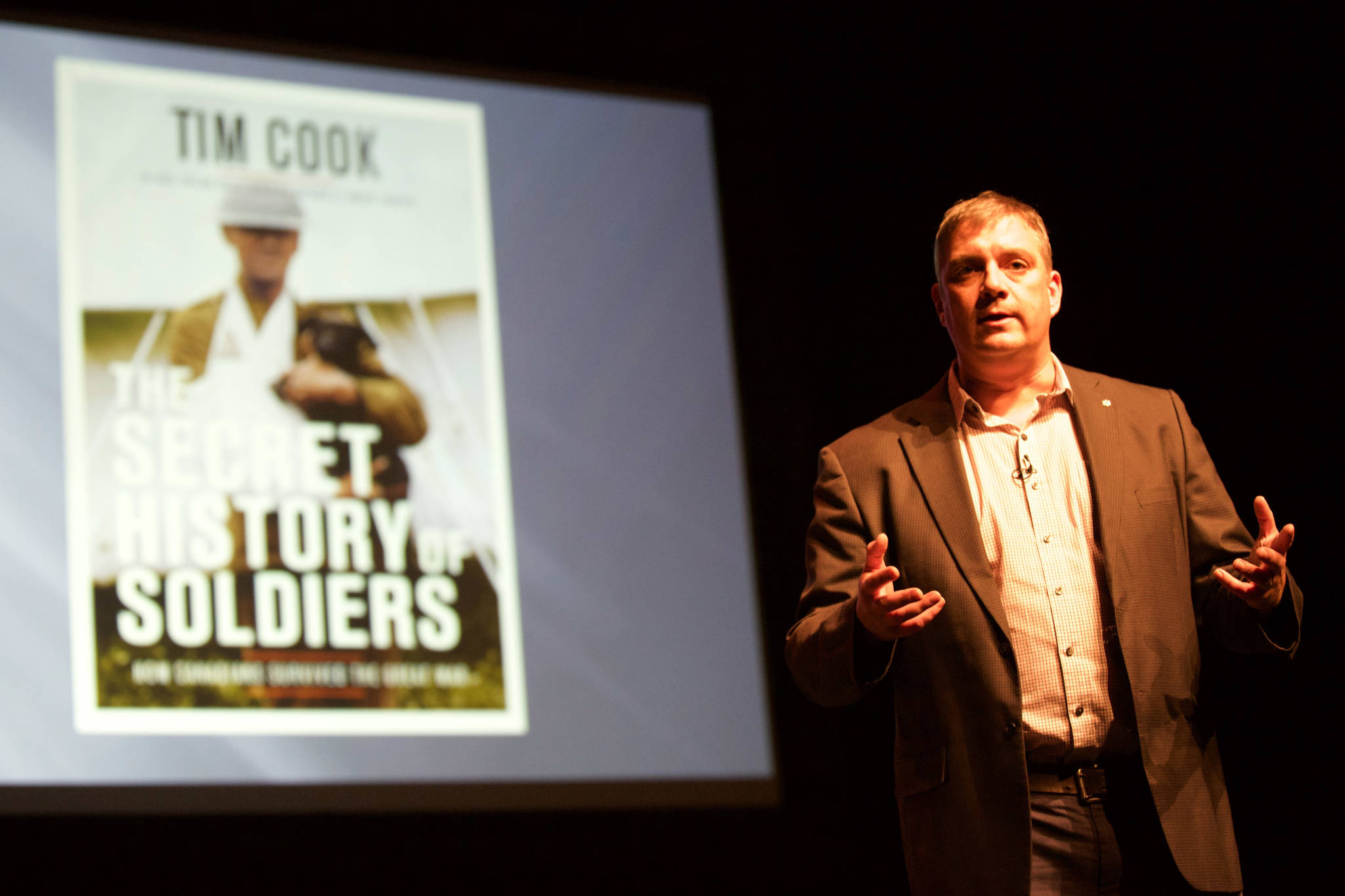Not much is known about the newspapers and cartoons WWI soldiers created or the liquor they drank while fighting in the trenches of France, but historian Tim Cook is changing that with his latest book, Secret Lives of Soldiers.
The renowned Canadian author was at Red Deer College on Thursday speaking at the RDC speakers’ series, Perspectives: Canada in the World. Cook gave both a talk to students about the culture of WWI soldiers in the afternoon and spoke as part of the official lecture in the evening.
“I think we are drawn more to the weapons and commanders and generals and the battles,” he said of why so little of the culture of WWI soldiers is known to the public.
“It’s not easy to find for people. You have to read a lot of those letters and those diaries and those personal accounts and I suppose you’ve got to look for it and maybe previous generations weren’t looking for this, and certainly it is something I stumbled across.
“It’s a book that is useful for scholars and it’s useful for Canadians that have a genealogical link and there are millions of Canadians,” he said.
During the afternoon talk, Cook said the book attempts to answer the question of how these soldiers survived in such terrible circumstances. He said there was more to the fighting, misery and death that surrounded them and has been depicted in movies, plays and books in past years. The soldiers, he said, brought their culture as a “shield for them in this terrible war.”
“It’s about how the soldiers band together, how the culture helps to band together,” he said. “The culture of song, of theatre, of superstitions. It’s a culture that allows them to push back against the authority. It’s a culture that reveals their masculinity. It’s a culture of emerging Canadian identity.”
Dr. Cook is the first World War historian at the Canadian War Museum and the author of 11 books, many of which have won awards. He curated the permanent gallery at the Canadian War Museum and other temporary, travelling and digital exhibitions.
Some sources Cook said he used to shed light on this rich culture included the newspapers soldiers published. These publications contained cartoons, poetry and prose, he said, that often revealed the humourous ways they rebelled against authority.
“The soldiers themselves liked to portray themselves in anti-heroic terms. You see that throughout the culture, throughout the songs and the cartoons. I think that is an interesting observation, especially if we think that this was a war of immense discipline and punishment. I think this provides insight into the inner workings of these soldiers.”
In the book, Cook also looks at the diaries and letters of these soldiers, which he said reveals a sense of urgency in the young men and, “That they are pushing back, that they want to live and that they are finding ways to cope in this awful environment.”
Dr. Jane MacNeil, interim dean of RDC’s School of Arts and Sciences, said Nov. 11th is the 100-year anniversary since the armistice ended World War I so the topic is particularly relevant.
“This is an event that impacted many, many parts of Canada,” she said. “It impacted Central Alberta in many, many ways. The percentage of individuals who served in Central Alberta is extraordinarily high and so there are many events that impacted Canada. This is one of them.”



